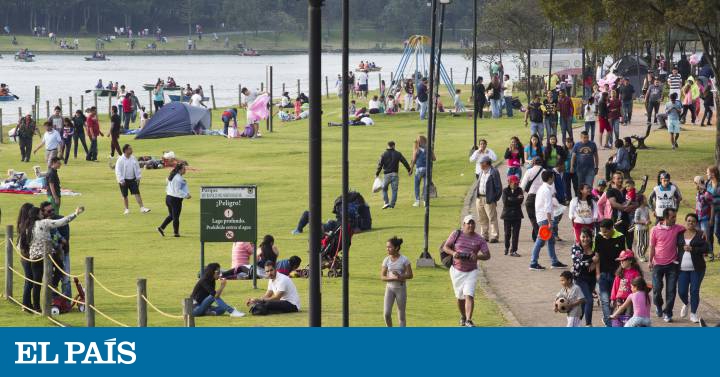If many of us already thought that this would be the century of women, the pandemic has just ratified it.
At least that is what Claudia López, mayor of Bogotá, affirmed in the context of the
feminist Municipalism - Female leadership and decision-making from local to global program
.
This so-called
Month of the global municipal feminist movement
, organized by UCLG with a broad cast of civil society leaders and representatives of local and regional governments, had the objective of fostering debate on the role of the international municipal movement in promoting the gender equality in all parts of the world.
MORE INFORMATION
Cities for women
Feminist urbanism reaches the polygon
“Feminist” cities: Can urban design take into account women and minorities?
The sessions were structured around themes related to the need to promote inclusive cities and territories;
putting care at the center through local feminist leadership;
and promote shared responsibility by putting women at the forefront to achieve resilience, proximity, and communities that they care for.
Throughout the different events organized, more than 50 women leaders participated, which included several mayors from cities such as Bogotá, Barcelona and Montevideo;
as well as several representatives of local and regional governments from cities as diverse as Polokwane, Tamiahua, Foumbola, Nouakchott, Subang Jaya or Quilmes.
A main conclusion was to verify that if, on the one hand, the Covid-19 crisis has exacerbated pre-existing inequalities against vulnerable populations, including women and girls;
on the other hand, it has strengthened the predominant role of women in responding to the pandemic.
As recalled, the crisis has had a disproportionate impact on women since they are the ones who work the most in informal settings.
Likewise, in a context of a pandemic in which inequalities and polarization are increasing, gender-based violence and discrimination are also on the rise, often accelerated by the precariousness of housing and confinement conditions, which overload them with responsibilities of careful.
The crisis has also strengthened the strong commitment of the municipal movement claiming local feminist leadership that puts care services at the center by prioritizing actions on the provision of public services such as health, education and the fight against inequalities, as well as pave the way for an ecological transition.
“Our feminist municipalist movement believes in collaboration between cities and in the strength of municipalism” commented Ada Colau, mayor of Barcelona and special envoy of UCLG to the United Nations and for the 2030 Agenda. “We believe in the power of city diplomacy as a transformative and united tool to achieve the future we want "
In this sense, there was a unison call for women to systematically participate in expert groups, working groups and response committees to COVID, as well as in legislative, political and budgetary decision-making processes, occupying leadership positions and in the search for gender parity.
One of the current threats that became evident was the worrying setback, after decades of progress, in gender equality and the empowerment of women.
Several speakers noted that this setback has been exacerbated both by the emergence of authoritarian movements and by new priorities in the context of the pandemic crisis.
For this reason, the need for the active participation of women not only to be celebrated, but also encouraged and supported, particularly at the local and subnational level, was stressed in order to promote inclusive policies and provide women with the space that corresponds to them. in public life for the benefit of society as a whole.
click on the photo
"The pandemic, climate change and many other challenges have shown that what the world needs is empathy, solidarity, intelligence, collective action and the capacity for interdisciplinary work" defended the mayor of Bogotá, Claudia López, "These are the adjectives of the skills that women have.
This is going to be the century of care: of caring for the planet, so as not to lose it;
health, because this will not be the last pandemic ”.
Based on these principles, the women leaders found that adequate urban and territorial planning, and the formulation of local policies in general, have the potential to generate a direct impact on the lives of women and girls, determining factors in determining how they interact and experience the city.
Crowning this month of the global municipal feminist movement, the general secretary of UCLG, Emilia Saiz, presented the Generación Igualdad virtual forums held in Mexico and Paris and recalled how their accession had been an important turning point for the world organization towards the emergence of a global municipal feminist movement focused on care. “It is necessary to promote political leadership and the development of strong alliances,” he stressed, “that help us change mentalities and find the way so that local policies are also feminist policies, both for women and for men”.
🔴 # GenerationEquality # Listen2Cities🟠
"The policy-making that women can bring to international, national, regional and local stages, can be transformative, empathic & trigger the transformation we need to ensure that all groups are included" @UCLG_Saiz, SecGen of @ uclg_org.
pic.twitter.com/G3u3PJZIHa
- UCLG Women (@uclg_women) March 30, 2021
Precisely, at the Generation Equality Forum in Paris, in June this year, UCLG will present a Notebook on Feminist Municipalism, as a contribution of local governments to the Pact for the Future, a new universal social contract from the communities. The joint statement before the 65th session of the United Nations Commission on the Legal and Social Status of Women (CSW65) of the organized group of Local and Regional Governments, gathered in the Global Taskforce (GTF) reaffirms these wishes and the call to The action of local and regional women leaders makes clear the common front of municipal voices to multiply the commitment of women and girls towards a more inclusive, sustainable and more resilient city model; a more feminist city model.

